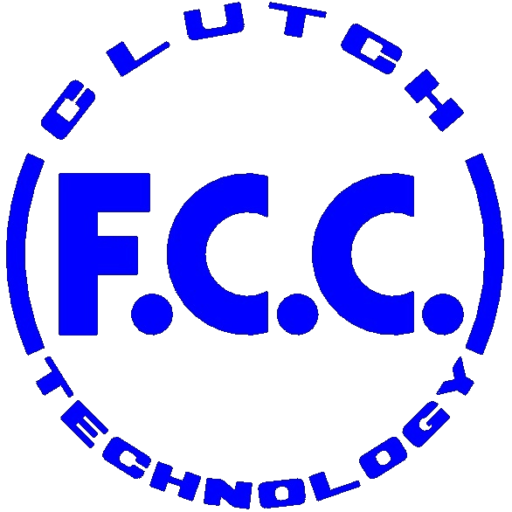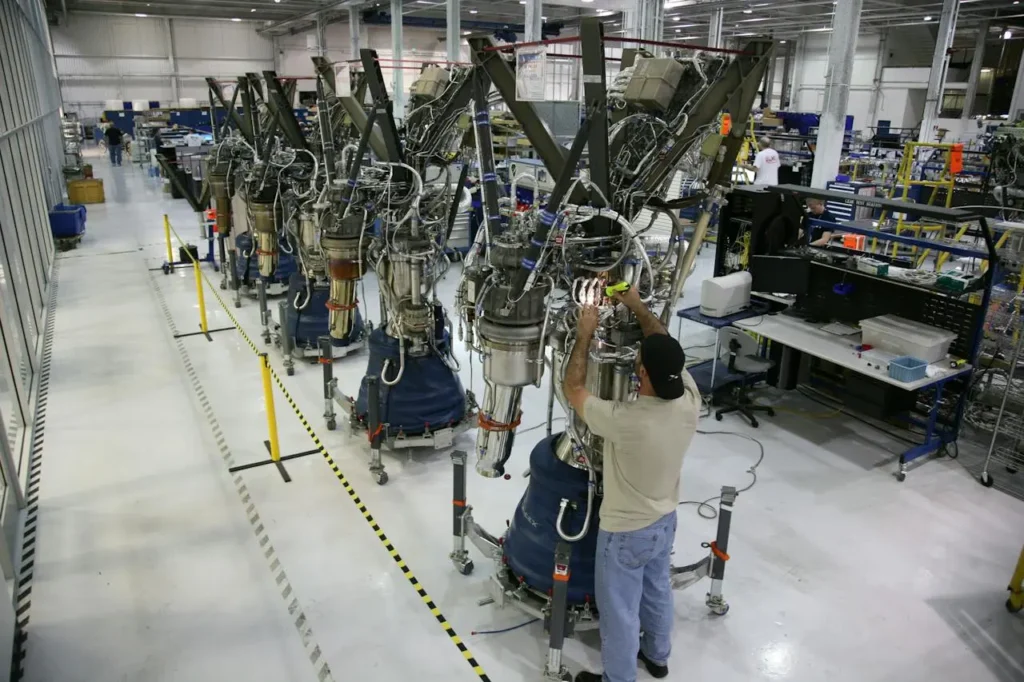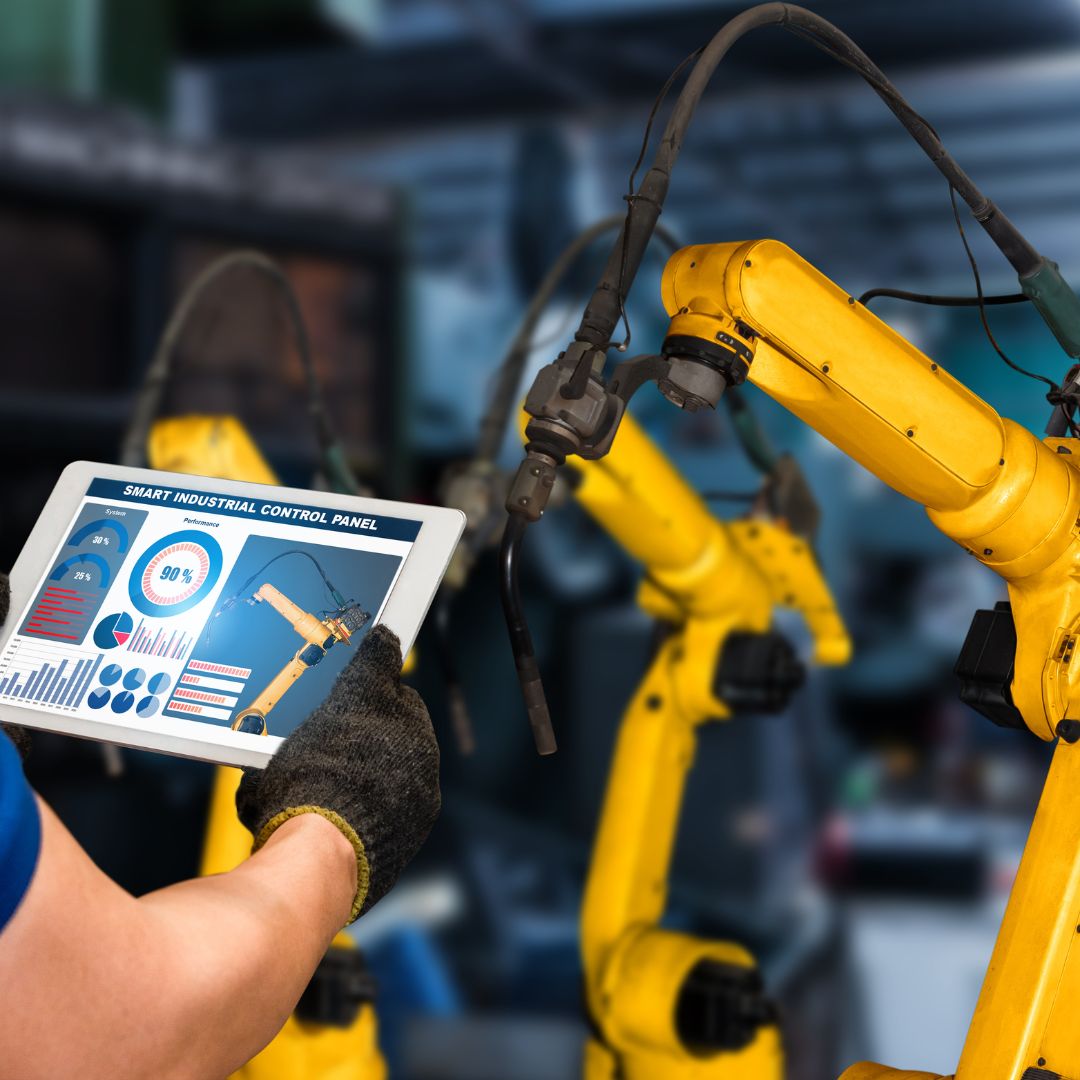In the contemporary landscape of manufacturing, characterized by rapid technological advancements and fierce global competition, the role of quality control cannot be overemphasized. Plus, with over 80 decades in this industry, we at FCC fully understand the importance of quality control in manufacturing. FCC has solidified its position as a cornerstone in the automotive industry, supplying superior clutches for both automotive and motorcycle applications.
In this post, we’ll fully explore the critical nature of quality control in modern manufacturing.
What is Modern Manufacturing?
In the fast-paced landscape of modern or contemporary manufacturing, characterized by cutting-edge technologies and global competition, the role of quality control takes center stage. Modern manufacturing is an intricate industry blended with precision, efficiency, and technological prowess.
According to a comprehensive study by the International Journal of Productivity and Performance Management, effective quality control is directly correlated with increased productivity and reduced manufacturing costs. It serves as the safeguard of product integrity, ensuring that each component adheres to stringent criteria for safety, performance, and customer satisfaction.
Key Principles of Quality Control
Quality control, as outlined by industry experts such as Dr. Joseph M. Juran, is not a mere procedural checkbox but a strategic imperative. Dr. Juran’s groundbreaking work emphasizes the holistic nature of quality control in manufacturing, encompassing managerial, technological, and statistical approaches to guarantee product excellence.
Implementation In The Manufacturing Processes
The integration of quality control in manufacturing involves meticulous scrutiny at every stage of the manufacturing process. Statistical Process Control (SPC) and the Six Sigma Methodology are indispensable tools in this arsenal. These methodologies empower manufacturers to maintain consistent quality by identifying and addressing variations in production processes.
Statistical Process Control (SPC)
Statistical Process Control (SPC) is a cornerstone in the arsenal of quality control methodologies. As a rigorous statistical method, SPC monitors and controls production processes, ensuring they operate consistently within specified limits. This method empowers manufacturers to detect and address variations in real time, preventing deviations that could compromise the quality of the end product.
Research conducted by leading practitioners, detailed in the Journal of Managing Service Quality, underscores the pivotal role of SPC in maintaining product quality. By employing statistical tools and techniques, manufacturers gain insights into the stability of their processes, enabling proactive adjustments and continuous improvement.
Six Sigma Methodology
The Six Sigma methodology stands as another indispensable tool in the quality control arsenal. Originating from Motorola in the 1980s and championed by industry leaders like General Electric, Six Sigma is a disciplined, data-driven approach to process improvement. It aims to minimize defects and variations, thereby enhancing overall process efficiency and product quality.
In the context of quality control in manufacturing, the implementation of Six Sigma involves a rigorous five-phase process: Define, Measure, Analyze, Improve, and Control (DMAIC). This methodology, detailed extensively in studies, empowers manufacturers to identify root causes of defects, optimize processes, and maintain consistent quality levels throughout production.
Cost-Benefit Analysis
Cost-benefit analysis (CBA) is a systematic process for evaluating the potential benefits and costs of a proposed project or decision. It involves quantifying all relevant costs and benefits to determine the financial viability and desirability of a particular course of action. The primary goal of CBA is to assess whether the benefits of a decision or project outweigh its associated costs.
Impact on Production Costs
While some may perceive quality control in manufacturing as an additional expense, research presents a compelling argument. The study indicates that the costs associated with defects, rework, and recalls far surpass the investment in robust quality control measures.
Here are a few more impacts of cost-benefit analyses:
1. Prevention of Defects
Implementing robust quality control measures helps in identifying and rectifying defects early in the production process. This preventative approach significantly reduces the costs associated with rework, scrap, and warranty claims.
2. Efficient Resource Utilization
Quality control ensures that resources are efficiently utilized by minimizing errors and wastage. By streamlining production processes, manufacturers can optimize resource allocation, leading to cost savings.
3. Reduced Inspection and Rework Costs
Investing in quality control in manufacturing reduces the need for extensive post-production inspections and rework. This leads to direct savings in terms of labor, time, and materials.
4. Mitigation of Liability Costs
Maintaining high-quality standards helps in avoiding product recalls and associated liability costs. The cost of potential legal actions, damaged reputation, and compensation to affected parties is significantly reduced.
Long-Term Benefits for Manufacturers
Investing in quality control in manufacturing transcends immediate costs, yielding long-term dividends.
1. Enhanced Brand Reputation
Consistently delivering high-quality products builds a positive brand reputation. Over time, this reputation becomes a valuable asset, attracting more customers and fostering brand loyalty.
2. Customer Loyalty and Repeat Business
Quality control contributes to customer satisfaction. Satisfied customers are more likely to become repeat customers, leading to a stable and loyal customer base that supports long-term business sustainability.
3. Reduced Warranty Claims
Investing in quality control measures decreases the likelihood of product defects, subsequently reducing the number of warranty claims. This long-term benefit directly impacts the bottom line by minimizing financial obligations for repairs or replacements.
4. Competitive Advantage
A commitment to quality positions a manufacturer as a leader in the industry. This competitive advantage attracts discerning customers who prioritize product excellence, providing a sustainable edge over competitors.
Technologies Shaping Quality Control
At FCC, we take a comprehensive, forward-thinking approach to our product development and manufacturing systems. This is why we are committed to the latest and most advanced technologies for improved safety, quality, cost, and delivery.
Here are a few technologies shaping quality control in manufacturing:
Automation and Robotics
Automation and robotics revolutionize quality control in manufacturing by introducing precision and efficiency into manufacturing processes. Automated systems perform tasks with a level of accuracy unattainable by manual methods. This technology is applicable in various stages of production, from assembly line operations to product inspection.
The benefits of automation and robotics in quality control include:
- Precision and Consistency: Automated systems ensure consistent and precise execution of tasks, reducing the risk of human error.
- Increased Efficiency: Robotics speeds up production processes, resulting in higher throughput and reduced lead times.
- 24/7 Operation: Automated systems can operate around the clock, enhancing overall production efficiency and reducing production time.
- Enhanced Safety: Dangerous tasks can be assigned to robots, reducing the risk of workplace accidents and injuries.
AI and Machine Learning Applications in QC
Artificial Intelligence (AI) and Machine Learning (ML) applications have ushered in a new era for quality control in manufacturing. This is because AI and ML bring predictive capabilities to quality control. By analyzing vast datasets, AI and ML enable manufacturers to proactively address potential defects, preventing issues before they impact production.
Overall, AI and ML allow:
- Predictive Maintenance: AI can predict when machinery is likely to fail, enabling proactive maintenance to prevent disruptions in the production process.
- Defect Prediction: Machine Learning algorithms analyze historical data to predict potential defects, allowing manufacturers to address issues before they impact production.
- Optimized Production Planning: AI algorithms optimize production schedules based on real-time data, ensuring efficient resource utilization and timely delivery.
- Adaptive Quality Control: Machine Learning systems can adapt and learn from new data, continuously improving the accuracy of quality control in manufacturing processes.
Regulatory Compliance
Adherence to industry standards is not just a best practice but a regulatory necessity. Organizations such as the International Organization for Standardization (ISO) play a pivotal role in setting and maintaining these standards, ensuring that products meet required specifications and safety standards.
Legal Implications of Non-compliance
Non-compliance with regulatory standards can have severe legal consequences. At FCC, we understand the gravity of legal implications and recognize the importance of stringent adherence to industry standards.
The effects of non-compliance include:
- Product Recalls: Non-compliance may necessitate product recalls, leading to significant financial losses and damage to brand reputation.
- Lawsuits and Penalties: Failure to meet regulatory standards can result in lawsuits, regulatory fines, and penalties, impacting both finances and corporate image.
- Market Exclusion: Non-compliance may lead to exclusion from certain markets or loss of certifications, limiting a company’s ability to operate globally.
- Reputational Damage: The fallout from non-compliance can result in severe reputational damage, eroding consumer trust and confidence in the brand.
Human Element in Quality Control
Despite advancements in AI and machinery, the human element remains irreplaceable in quality control in manufacturing. Dr. Deming, an expert in Total Quality Management philosophy, emphasizes the pivotal role of skilled and trained personnel. Your team’s expertise in identifying nuances and anomalies, that automated systems may overlook, is invaluable in ensuring uncompromising product quality.
Training and Skill Development
Investing in the training and skill development of the workforce is integral to maintaining effective quality control.
We at FCC recommend the following skill development and training:
- Advanced Technology Training: Equip the workforce with the skills needed to operate and understand advanced technologies integrated into the manufacturing process.
- Quality Control Methodology Training: Provide comprehensive training on quality control methodologies, including Statistical Process Control (SPC) and Six Sigma.
- Soft Skills Development: Enhance communication, teamwork, and problem-solving skills to facilitate effective collaboration within the quality control team.
- Continuous Learning Programs: Implement ongoing learning programs to keep the workforce abreast of the latest industry trends, technologies, and best practices.
Continuous Improvement
Continuous improvement is a cornerstone of our approach at FCC. It involves ongoing efforts to enhance products, processes, and overall efficiency to meet evolving customer needs and industry standards.
Kaizen Philosophy in Quality Control In Manufacturing
The Kaizen philosophy, rooted in continuous improvement, aligns seamlessly with quality control in manufacturing.
These are the key aspects of the Kaizen philosophy:
- Continuous Small Changes: Kaizen encourages the implementation of small, incremental changes to improve processes over time.
- Employee Involvement: Empower employees to actively participate in identifying areas for improvement and implementing changes.
- Data-Driven Decision-Making: Utilize data and feedback to inform decision-making, ensuring that improvements are based on measurable outcomes.
- Cultural Integration: Kaizen is not just a methodology; it becomes a part of the organizational culture, fostering a mindset of continuous improvement at all levels.
Iterative Approaches to Enhance Manufacturing Processes
Quality control in manufacturing fosters a culture of constant iteration. By learning from defects and optimizing processes accordingly, manufacturers ensure that each iteration brings them closer to perfection.
Here are a few strategies for iterative approaches:
- Regular Process Audits: Conduct regular audits to evaluate the effectiveness of existing processes and identify areas for refinement.
- Feedback Loops: Establish feedback loops that allow for continuous communication between different stages of production, facilitating timely adjustments.
- Post-Implementation Reviews: After implementing changes, conduct thorough reviews to assess their impact on product quality and overall efficiency.
- Adaptive Planning: Embrace an adaptive planning approach that allows for flexibility in response to changing market dynamics and customer expectations.
Industry 4.0 and Quality Control In Manufacturing
Industry 4.0 represents the fourth industrial revolution characterized by the integration of digital technologies into manufacturing processes. This transformation encompasses the use of smart technology, data analytics, and connectivity to enhance overall efficiency and productivity.
Smart Manufacturing and Its Impact
The advent of Industry 4.0 heralds a new era of smart manufacturing. It enables manufacturers to make data-driven decisions, adapt to dynamic market conditions, and ensure unparalleled product quality.
The Role of Data Analytics in QC
Data analytics, a cornerstone of Industry 4.0, empowers quality control in manufacturing by providing actionable insights. Real-time monitoring, predictive analytics, and prescriptive recommendations ensure that manufacturers stay ahead of potential issues, enhancing overall product quality.
Summary
With modern manufacturing, quality control contributes to a flawless end product. From the meticulous implementation of SPC and Six Sigma to the transformative impact of AI and automation, quality control is not just a process—it is the heartbeat of manufacturing excellence. As we navigate the complexities of Industry 4.0, the fusion of human expertise and technological innovation in quality control will continue to shape the future of manufacturing, setting the stage for unparalleled product quality and customer satisfaction.
Unlock the potential of your evolving landscape by envisioning the seamless integration of FCC’s cutting-edge technology. Whether you’re navigating industry changes or seeking technical expertise, connect with FCC today to explore a future where innovation meets excellence.
Explore Innovation with FCC Today!





